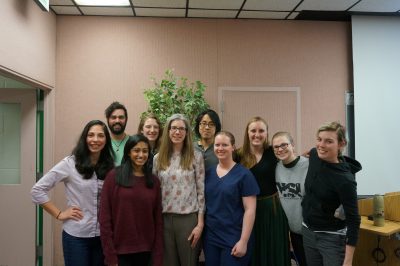by first-year DVM student Eric Ham
People say, “Be yourself,” as if it is an easy thing to do. It’s not bad advice, but in order to be ourselves, we need to know who we are to begin with. Self-discovery is a never ending journey, and ultimately, the steps we take are more important than any destination.
Dr. Jennifer Garcia came to the College in February to speak about implicit bias, which is something everyone has. She described what implicit bias is, where it comes from, why it is important to understand, and how it manifests itself in our everyday behavior.
Implicit biases are the mental shortcuts we take when making “routine decisions.” It is waht aollws us to raed jmubeld txet wtih esae. We look for certain clues, then fill in the rest. It’s an important survival trait shaped by our community, environment, and experiences.

But there are times these shortcuts can lead us into trouble. When we run completely on autopilot, we may not think things through enough. We can make comments that hurt others without ever realizing it. We have all been at the receiving end of these microaggressions—instances when people assume things about us because of our outward appearance. Individually, they may not be much, but their effects can accumulate.
Implicit biases are not necessarily good or bad. They are a natural part of life. By becoming more aware of our biases, we can improve our interactions with others, become more accurately intuitive, and have more confidence to be ourselves.
There are resources available that can help investigate some of our implicit biases, but we also can take steps in the normal course of our day to become more in tune with ourselves. Next time we meet someone new, we can try asking ourselves what we noticed first about them. What conclusions did we draw from those details? Even though we may not like what we find, it is important not to censor what we notice. Only by being completely honest can we gain insight into how our minds work. Developing this self-awareness is a key step in being able to take a more conscious role in our lives.
A special thanks from the author to Bridget Bennett for her help.
